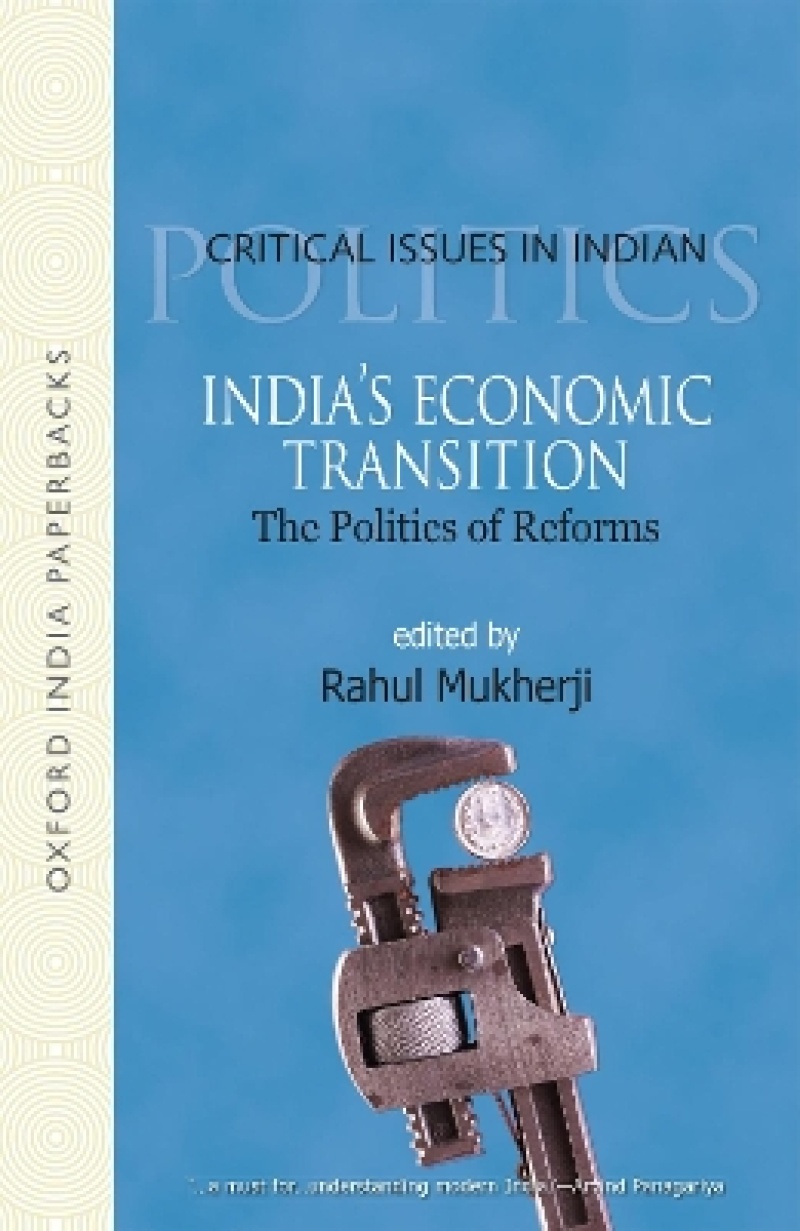A set of thoughtful, timely and perceptive essays on the fraught question of India's economic reforms.
Sumit Ganguly, Professor of Political Science, Indiana University, Bloomington
This volume examines the reforms and their impact on the political economy of India. The introduction to the volume analyses the politics that shaped economic policy during three broad phases-from independence to 1968, between 1969 and 1974, and the period after 1975-leading to the balance of payment crisis of 1991. The volume addresses such questions as: What were the economic reforms undertaken after 1991? Why did they occur and how were they sustained? What was the impact of economic reforms on India's political economy? In addition, it includes significant features of the post-reform political economy like the growing importance of Indian federalism; a new politics of regulation governing markets in areas such as telecommunications, power, and stock exchanges; industrial lobbying; trade union activism; and the curious mix of benefits and costs associated with the rise of India's IT sector.
Les mer
This volume examines the social and political processes that underlined India's economic transition from Independence till 1991 and onwards. It examines key debates surrounding economic reforms and discusses salient features of the post-reforms political economy.
Les mer
LIST OF TABLES AND FIGURES; ACKNOWLEDGEMENTS ; PUBLISHER'S ACKNOWLEDGEMENTS ; INTRODUCTION: THE STATE AND PRIVATE INITIATIVE IN INDIA (RAHUL MUKHERJI) ; I. DEVELOPMENT STRATEGY ; 1. What Went Wrong? (Jagdish Bhagwati) ; 2. The Indian Economy under 'Structural Adjustment' (Prabhat Patnaik and C.P. Chandrasekhar) ; 3. Economic Reforms in India since 1991: Has Gradualism Worked? (Montek S. Ahluwalia) ; II. THE POLITICAL ECONOMY OF REFORMS ; 4. Economic Transition in a Plural Polity: India (Rahul Mukherji) ; 5. Mass Politics or Elite Politics? Understanding the Politics of India's Economic Reforms (Ashutosh Varshney) ; 6. Political Skills: Introducing Reforms by Stealth (Rob Jenkins) ; 7. The Limits of Economic Nationalism in India: Economic Reforms under the BJP-led Government, 1998-9 (Baldev Raj Nayar); III. Economic Reforms and the Political Economy ; 8. Iconization of Chandrababu: Sharing Sovereignty in India's Federal Market Economy (Lloyd I. Rudolph and Susanne Hoeber Rudolph) ; 9. Economic Reform, Federal Politics, and External Assistance: Understanding New Delhi's Perspective on the World Bank's State-Level Loans (Jason A. Kirk) ; 10. Managing Competition: Politics and the Building of Independent Regulatory Institutions (Rahul Mukherji) ; 11. Politics of Market Micro-Structure: Towards a New Political Economy of India's Equity Market Reform (John Echeverri-Gent) ; 12. Bangalore: The Silicon Valley of Asia? (Anna Lee Saxenian) ; 13. Public Sector Restructuring and Democracy: The State, Labour, and Trade Unions in India (Supriya RoyChowdhury) ; 14. Liberalization and Business Lobbying in India (Stanley A. Kochanek) ; SELECT BIBLIOGRAPHY ; NOTES ON CONTRIBUTORS ; INDEX
Les mer
Discusses economic reforms both prior to and post 1991
Topical issues-federalism, IT and telecom, power, and regional disparity
Brings together eminent economists and political scientists
Rahul Mukherji is Associate Professor, South Asian Studies Programme, Faculty of Arts and Social Sciences, National University of Singapore, Singapore.
Discusses economic reforms both prior to and post 1991
Topical issues-federalism, IT and telecom, power, and regional disparity
Brings together eminent economists and political scientists
Produktdetaljer
ISBN
9780198069676
Publisert
2010
Utgiver
OUP India
Vekt
440 gr
Høyde
215 mm
Bredde
138 mm
Dybde
28 mm
Aldersnivå
G, 01
Språk
Product language
Engelsk
Format
Product format
Heftet
Antall sider
472
Redaktør
